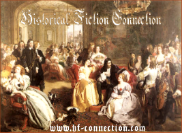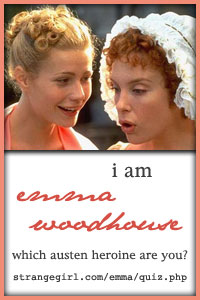 Author Robin Maxwell was gracious enough to answer some questions about her new novel O, Juliet, due to be released at the beginning of February. Please check out her website dedicated to the new novel and participate in the Love Games and giveaways!
Author Robin Maxwell was gracious enough to answer some questions about her new novel O, Juliet, due to be released at the beginning of February. Please check out her website dedicated to the new novel and participate in the Love Games and giveaways!1. What made you want to write this version of Romeo and Juliet's story?
While love had played an important role in all my novels, none of them could have been considered a true "love story." And as that emotion has always played a central role in my own life -- I've been with my wonderful husband for going on thirty years -- I really wanted, as an author, to take a shot at high romance. How much higher and much more romantic can you get than Romeo and Juliet? It's the template for almost all the great love stories that exist -- two young people from opposite sides of the track who must fight against society, convention and families in order to be together.
2.This story was made famous by Shakespeare and was even around before that in Italian short stories. How did you decide which bits and pieces from these previous tellings fit into the story you wanted to tell? How did you make sure your story was different?
When I re-read Shakespeare's version (I hadn't done this since 8th grade English class) I was overwhelmed with the beauty of the language, but I found myself frustrated by the lack of detail about the intimate lives of the protagonists. They must have had families and friends, homes, beds, businesses and conversations over dinner tables (with fabulous Italian food, I imagined!), fears, secrets and dreams -- and I wanted to explore those details while I took Romeo and Juliet through the classical storyline that could really not be improved upon.
3. What would you like to tell readers who might think that this is just going to be Shakespeare's story all over again?
Firstly, where Shakespeare's entire play takes place over a period of less than a week, O, JULIET plays out over several months. And as I wanted my protagonists to have full-blown emotional and intellectual lives, I added a few years to their age (in the play they are fourteen and fifteen). I suppose where I really departed from the Bard's tale was in the creation of Jacopo Strozzi -- the man that Juliet has been prommised to in marriage by her parents. He is her father's business partner, and I chose to make him as despicable as Romeo is fabulous. Some readers might take umbrage with that decision as unsubtle or cliched, but having been a writer for thirty years now, I never underestimate the importance of a great villain.
I've also, from the start, set Romeo in the role of a peacemaker between his and Juliet's family, even before the two of them meet. And I wanted to give the couple something substantive that they have in common (other than mutual love at first sight) so I chose poetry -- they're both amateur poets, and they're both Dante freaks. Dante was the John Lennon, the Bob Dylan of the medieval world -- a real rock star. And because I made that fateful creative choice, I was forced to write poetry in both Romeo's and Juliet's voices. Aaaiigghhh!!!! Of course, I'm no Shakespeare, but it was a hoot trying my hand at romantic verse. And just for a laugh (and to Romeo's chagrin) I made Juliet a better poet than him.
4.How did you go about researching Romeo and Juliet's lives? Is there any evidence that suggests there really was a couple similar to this?
Certainly there have been tales of star-crossed lovers that go back to ancient Greece and Rome. And there are the three Italian short stories that claim to tell of the Tuscan couple's tragic affair (alternately in Siena or Verona). But even earlier -- in 1215 in Florence -- two families on either side of the bloody, long-running feud between the Guelfs and the Ghibellines were involved in a broken betrothal, a clandestine love affair, and a cousin stabbed to death near Ponte Vecchio. How the story was spun by various authors over the centuries has more to do with those writers' imaginations and sense of drama than historical truth, but nobody can deny the archtypes of Romeo and Juliet run deep and strong in our culture and psyche.
5. What was your favorite part of the story? Favorite character?
I think my favorite part was having Romeo actually succeed, for a time, in bringing the families together as friends. Their two fathers have an especially hard time of it, but under Romeo's gentle guiding hand, even Roberto Monticecco and Capello Capelletti find common ground. My favorite creations were Roberto (a kind and sensitive man driven to vengeful acts by family pressures); Marco -- Juliet's clownish cousin; the aforementioned Jacopo Strozzi and his "dragon lady" mother; and Cosimo de' Medici (the man who single-handedly brought about the Renaissance).
6. Lucrezia Tornabuoni (de' Medici) is well know to history. Why did you decide to cast her in the role of Juliet's friend and confidante?
Actually, when I was trolling around for a new book idea my editor, Kara Cesare, suggested I write one with Lucrezia as the protagonist. She was Lorenzo "The Magnificent" de' Medici's fabulous mother, whom I'd introduced in SIGNORA DA VINCI. I immediately said no, as I didn't feel there was enough about her life to hang a whole novel on. But when I conceived of O, JULIET, I realized that if I set it in Florence just before Lucrezia married into the Medici clan, she and Juliet could be best friends. That way I could illuminate Florentine society in a relatively peaceful moment in its history, just as it was about to explode into the brilliance of the Renaissance, and weave into the story some real historical figures -- something that I'm extremely comfortable with. Lucrezia, a famous beauty with a stellar education and a sweet heart, was a perfect foil for my feisty and sometimes outrageous Juliet.
I want to thank Ms. Maxwell again for taking the time to do this interview for me. I hope everyone is excited about the release of her new book O, Juliet next month. Please stay tuned for my review, which I will post next week, and a possible giveaway!! Make sure to head over to the O, Juliet website to check out the fun!
























I am very excited to read this book..thank you both for the lovely interview. I really enjoyed it.
ReplyDeletei'm really looking forward to this book as well. I just stumbled across your blog and I think it's wonderful. I love your music!
ReplyDeleteDear lord I can't wait to read this book!! I love hating a good villian too :) Yippee! Sigh...poetry, Romeo...sigh...
ReplyDelete